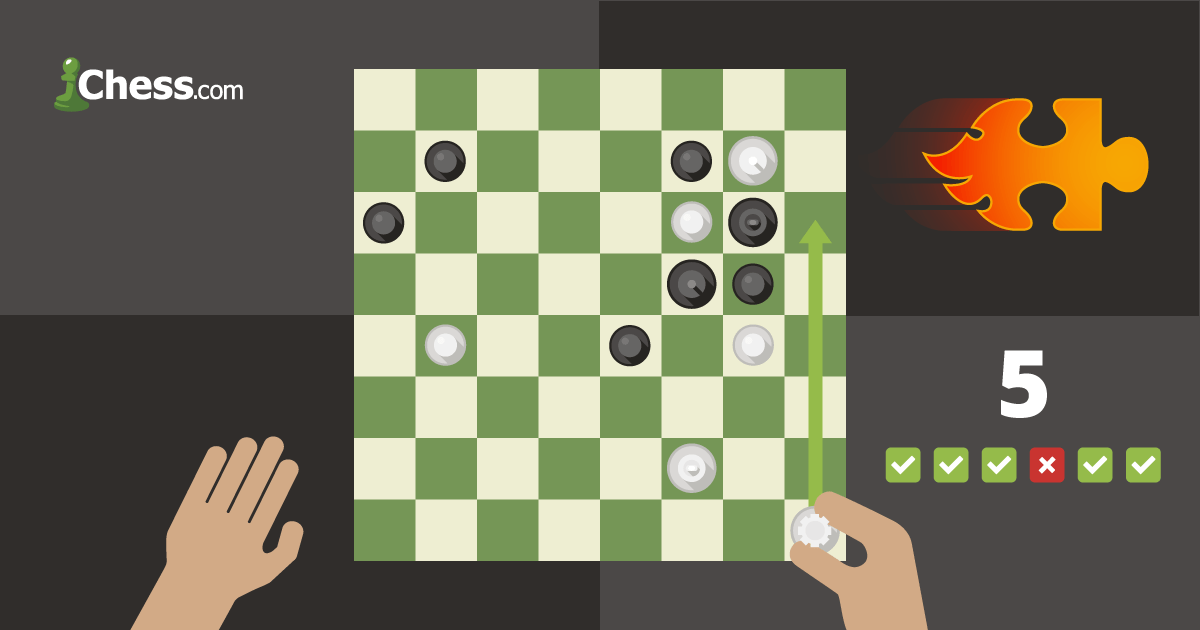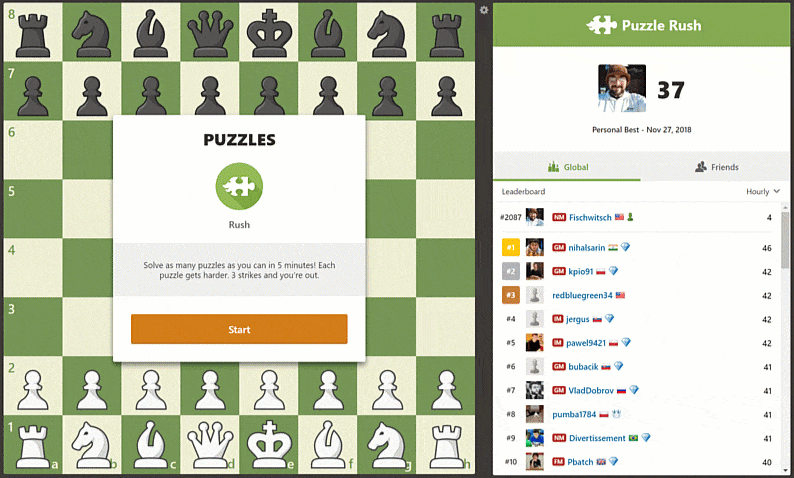
Are You Addicted To Puzzle Rush?
Chess.com's new game called "Puzzle Rush" is taking the chess community by storm! If you haven't tried it yet, you should. But be warned, the game is very addictive. While I doubt we will ever see "Puzzle Rush Anonymous," nevertheless, once you start playing it is difficult to stop!
The rules are very simple: you need to solve as many puzzles as you can in just five minutes. But remember, three strikes (wrong solutions) and you are out! Puzzle Rush is a good test of your tactical vision and a nice opportunity to compare your skills against best players in the world.
Here is how I would roughly gauge your playing strength by your score in Puzzle Rush:
- 9 or fewer correct answers: You've probably started playing chess quite recently.
- 10-19: You are an experienced club player.
- 20-29: You are a strong tournament player.
- 30-39: You are at least a master.
- 40-49: You are a grandmaster (or will be one soon!)
- 50-54: If FIDE ever organizes a world bullet championship, you should definitely play. You will be in the top 20 for sure!
- 55 or more: Hi, Hikaru! Thanks for reading this article.
In essence, this entertaining game tests two things: your ability to recognize patterns and your speed! You could be an ultimate opening exert, a wizard of positional play and an endgame maven, but all these skills won't help you in Puzzle Rush.
Think about it—the current record set by Nakamura is 55. This means that he correctly solved his puzzles with an average speed of less than 5.5 seconds per puzzle! In this amount of time you won't be able to even notice all the pieces on the board! Therefore, it is all about your pattern-recognition ability. You look at the position of the opponent's king and try to see the familiar tactical themes.
Say you see something like this:
You can already sense that this position is probably about a back-rank checkmate, so you look at your queen and rooks and see if any of them can reach the back rank! You don't need to look at your other pieces and especially pawns, as it will cost you precious seconds. This way, just a couple of seconds would be enough to solve the puzzle if it is indeed about the back rank. Unfortunately, there is a chance that the position features some other tactical pattern. In this case it will cost you extra time.
As you can see, if all the patterns in Puzzle Rush were as simple as back-rank combinations, it wouldn't be that difficult to solve them in five seconds per puzzle. But some puzzles are not that obvious and take much more time. By the way, the same situation happens in regular games. Here are examples from recent tournaments.
I have no doubt that the grandmaster from Armenia spotted the combination instantly, since it is very similar to one of the most famous games in chess history:
From the other side, another famous grandmaster from Armenia didn't find a simple tactical shot in the following position. Can you find what GM Aronian missed?
How could such a brilliant tactician as Levon Aronian miss a simple tactical shot? Well, we discussed recently why chess players miss obvious moves. But if you take into account that it was a rapid game and besides the tactical pattern was not as obvious as, say, a back rank checkmate, we have a situation here that is really similar to one you experience frequently in Puzzle Rush!
By the way, if you are wondering about the tactical pattern that GM Aronian missed, here is another example of this combination:
As you can see, Puzzle Rush is not only an entertaining new game; it is also a very useful tool to broaden your tactical horizons! So, if you have tried Puzzle Rush already, please mention your score in the comment section.
Let's see who has the highest score among the readers of this article.







